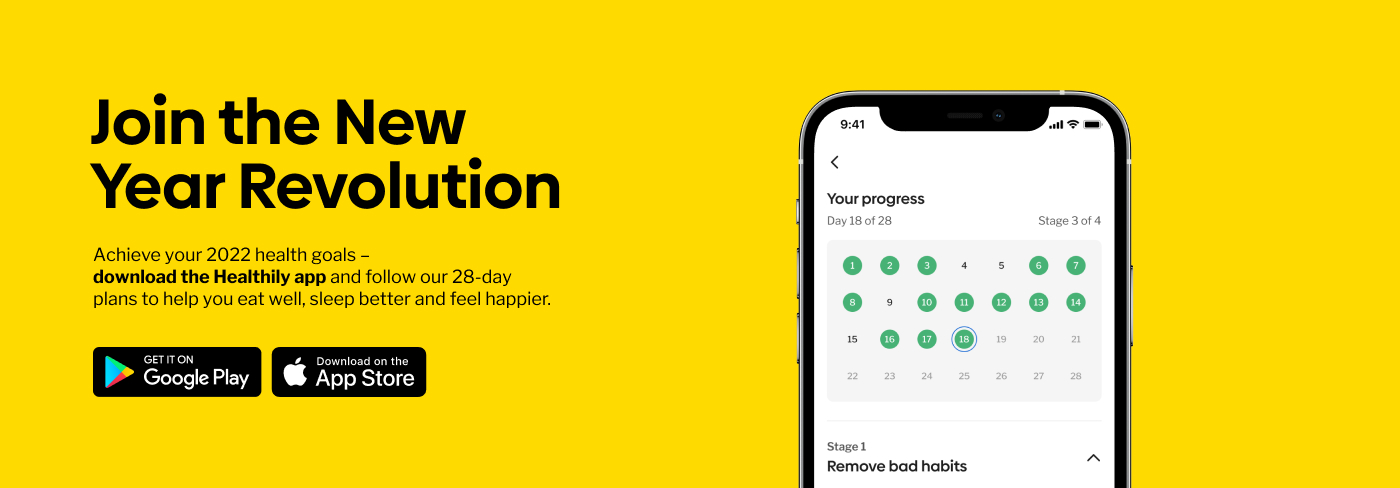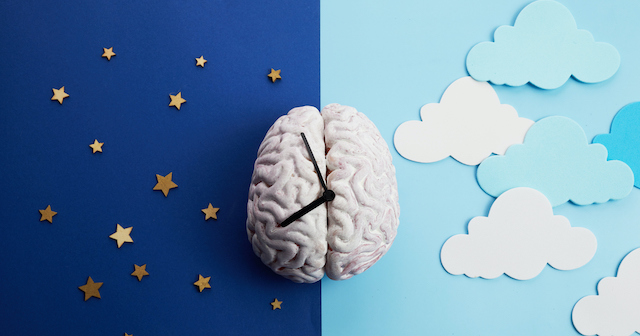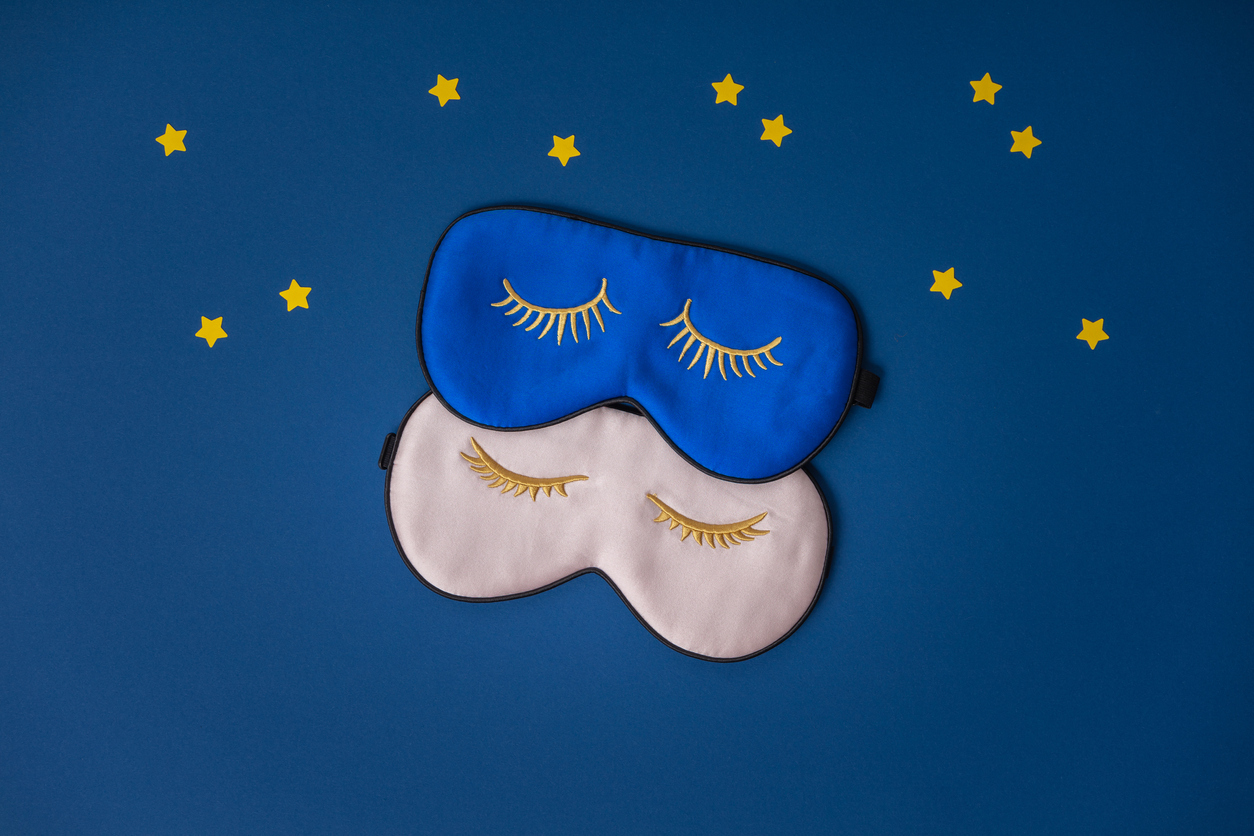When life gets busy, be it work commitments or taking care of your family, your sleep pattern can easily be disrupted. Perhaps you’re unable to switch off from a busy day or are worried about the day ahead. Or you’re caring for children during the night.
It’s not surprising that a lack of sleep affects the quality of life because your body won't be able to recover properly, or get the chance to recharge that it needs. Here’s a quick tour of the science behind sleep and how to make sure you get better quality slumber.
How sleep works
Many factors can affect your sleep. These include circadian rhythm, hormones, sleep pressure, genetics and lifestyle.
Circadian rhythm
Circadian rhythm comes from a Latin phrase meaning ‘around a day’. Our circadian rhythms are, on average, 24-hour cycles that work as an internal clock. They control sleep, but also things like our preferences for eating and drinking, body temperature and metabolic rate.
At nighttime, a hormone called melatonin is produced via the pineal gland in the brain, promoting sleep signals throughout the body. Blue light, from devices such as computers and smartphones screens, can block melatonin from being released.
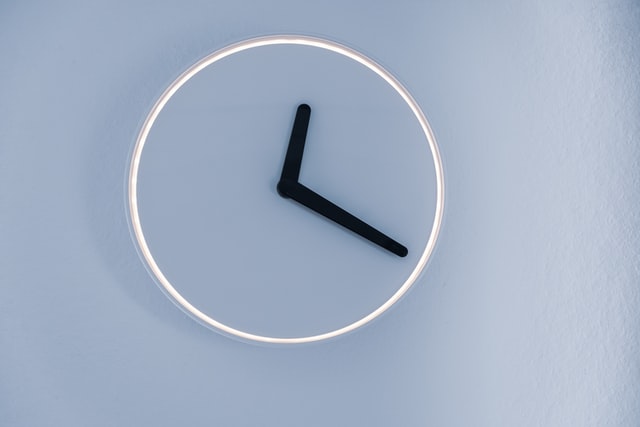
Sleep pressure
While we’re awake, pressure for sleep builds up in the body. During our waking hours, levels of a chemical called adenosine rise – it’s believed that this helps to make us feel sleepy, the longer we’re awake.
Some substances, such as caffeine, interfere with how adenosine works and have a stimulating effect on the brain – which may result in sleep disturbances.

Sleep cycle
There are 4 stages of our sleep cycle: 3 stages of non-rapid eye movement (NREM) sleep (which includes deep sleep) and 1 stage of rapid eye movement (REM) sleep.
The first stage of NREM sleep allows us to transition between wakefulness and sleep, lasting 1 to 5 minutes.
The second stage of NREM sleep occurs when our conscious awareness lessens. In this stage, normally lasting about 10 to 60 minutes, our body temperature drops and heart rate starts to slow down.
In the third stage of NREM sleep, we enter into deep sleep – our muscles relax and our blood pressure and breathing rates drop.
During REM sleep, the brain is very active – almost as much as when we’re awake – and the eyes move around quickly beneath the eyelids. This is when we’re most likely to have vivid dreams.
We cycle through these stages of sleep, each cycle lasting typically around 90 to 120 minutes.
According to family doctor, Dr Nikki Curtis, cycling through these stages of sleep plays an important role in memory.
“During NREM sleep, we sort through our memories from the day; and during REM sleep we add these new memories to our existing ones. This back and forth between NREM and REM sleep allows us to process these new memories, fitting them in with our existing experiences to help us better understand the world around us.”
But a poor night’s sleep can affect this process, says Dr Nikki.
“Disrupting the quality or quantity of either type of sleep affects our ability to store and process this new information. Staying up all night revising before an exam can work against you, but 'sleeping on it' really can help you find new solutions.”
How to get better sleep
According to the Sleep Council Manifesto (SCM), 21% of doctors’ appointments are for people feeling tired, and 4 out of 5 people with poor sleep have low mood.
If you regularly miss out on good sleep, it can affect you in a number of ways, says Dr Nikki.
“Ongoing poor sleep has a big effect on so many aspects of our wellbeing – people come to see me with low energy, poor memory, difficulty concentrating, anxiety and relationship problems. It quickly turns into a vicious cycle as we worry and this impacts our sleep further.”
The key, Dr Nikki says, is taking active steps to improve your sleep.
“Turning this around involves understanding the importance of sleep, and prioritising it by creating healthy, regular bedtime routines. Invest in your sleep because it’s so important, and you’re worth it.”
The SCM also reports that 40% of us are struggling to get enough sleep, and that 1 in 3 of us gets less than 6 hours’ sleep a night.
The good news is that there are many simple things we can do to improve our chances of sleeping better, including:
- getting into a sleep routine that supports our natural circadian rhythms – this may mean going to bed and waking up the same time every day, also on weekends
- avoiding caffeine at least 4 hours before bedtime
- avoiding blue light after dark – blue light from laptops, phones and your TV can inhibit melatonin release
- exercising daily, but not close to bedtime – exercise can stimulate the sympathetic nervous system and keep you awake
- if you share your living or sleeping space with someone – for example, if you have children, you may have many sleepless nights. Talk to your partner about sharing the load or having lie-in rotas; prioritise catching up on rest when you can; and ask for and accept help from others to help you get the rest you need.
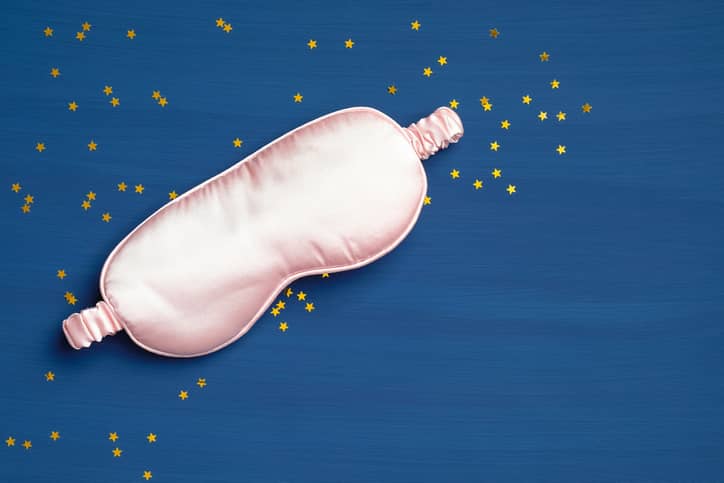
Key points
- 3 key factors govern our sleep: circadian rhythm, sleep pressure and our sleep cycle
- the sleep cycle has 2 phases : NREM and REM sleep
- our bodies produce a chemical called adenosine, which builds up while we’re awake and eventually makes us want to sleep
- a hormone called melatonin, released after dusk, promotes sleep signals throughout the body
- for better sleep, try getting into a regular sleep routine, not drinking caffeine at least 4 hours before bedtime
Did you know, you can use the Healthily app to track your sleep? Once you've downloaded the app, go to 'Settings' then 'My trackers' and choose 'Sleep length' and 'Sleep quality'.

